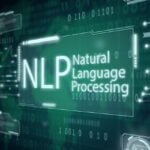Mistral AI, a French startup, is making significant strides in the Artificial Intelligence sector, having secured its second major funding round of the year, a whopping 385 million euros, or approximately $415 million. This considerable investment, spearheaded by renowned venture capital firms Andreessen Horowitz and Lightspeed Venture Partners, highlights the escalating interest and faith in the capabilities of generative AI startups.
The recent funding round has propelled Mistral AI’s valuation to a staggering $2 billion, signifying an extraordinary sevenfold surge in just half a year since its establishment. The startup, the brainchild of three AI industry stalwarts – Timothée Lacroix and Guillaume Lample, ex-researchers at Meta Platforms Inc’s Paris AI Lab, and Arthur Mensch, a former member of Google LLC’s DeepMind – has quickly earned accolades for its innovative approach to generative AI technologies.
In contrast to rivals like OpenAI and Google, Mistral AI endorses an open-source ethos. This strategy ensures that the foundational code for its large language models (LLMs), similar to the technology behind ChatGPT and Gemini, remains available for others to use and adapt freely. By promoting open-source AI, Mistral AI aspires to equip users with the necessary tools to swiftly create personalized chatbots.
While OpenAI and Google have voiced apprehensions about the potential misuse of AI technology when open-sourced, Mistral AI stands firm in its conviction that AI should be universally accessible. Anjney Midha, a partner at Andreessen Horowitz, underscored the startup’s dedication to an open-source approach, pointing to the broad acceptance of similar practices across diverse technological fields.
The ongoing rivalry in the generative AI domain sees tech giants like Microsoft, Google, and OpenAI at the forefront with significant investments in training models such as GPT-4 and Gemini. These models, trained on extensive internet data, are capable of performing a variety of tasks, from answering queries and writing exams to generating original code and beyond.
Nonetheless, discussions about the responsibility of openly releasing such potent models continue. While some call for rigorous safety measures to prevent misuse, others, including Mistral AI, contend that the future of generative AI depends on democratizing access, even if it entails open-sourcing without comprehensive safeguards.
Holger Mueller, an analyst at Constellation Research Inc., highlighted the divergent philosophies in AI development, drawing attention to the split between the closed approaches of Microsoft, Google, and OpenAI and the open-source advocacy championed by Mistral AI. This debate echoes past technological advancements where open-source solutions have often prevailed, although the outcome for AI is still up in the air.
Mistral AI’s recent unveiling of Mistral 7B, its inaugural LLM with 7 billion parameters, underscores efficiency and cost-effectiveness as opposed to larger models. The startup’s CEO, Arthur Mensch, asserts that Mistral AI’s training methodologies enable models to function at significantly lower costs than those of its competitors.
Looking forward, Mistral AI intends to develop more “frontier models” concentrating on tasks like summarization and question response. The company’s pioneering efforts in crafting accessible AI solutions signal an exciting chapter in the evolution of generative AI technology.
Naorem Mohen is the Editor of Signpost News. Explore his views and opinion on X: @laimacha.

